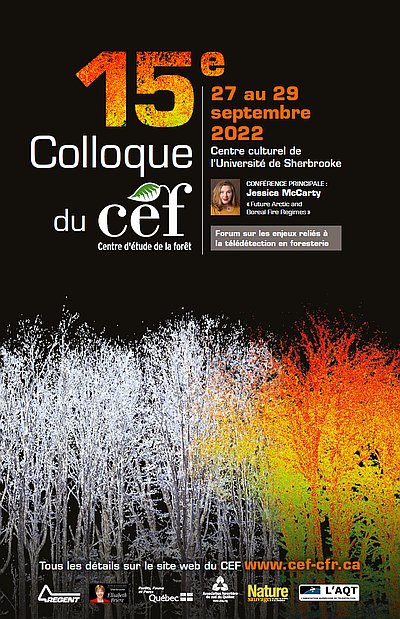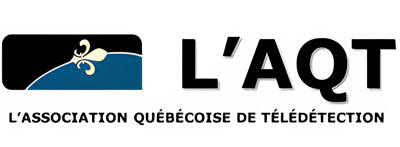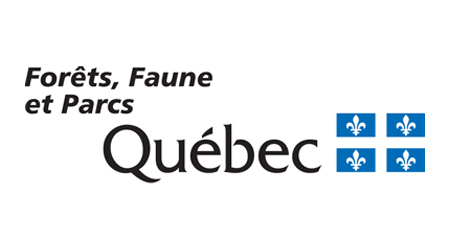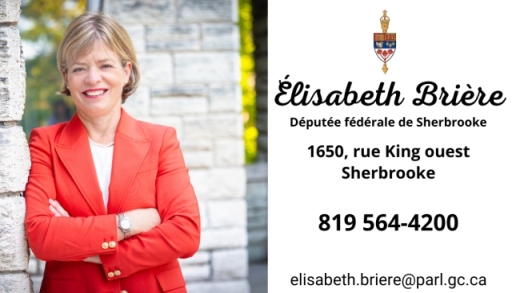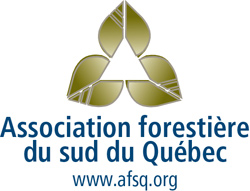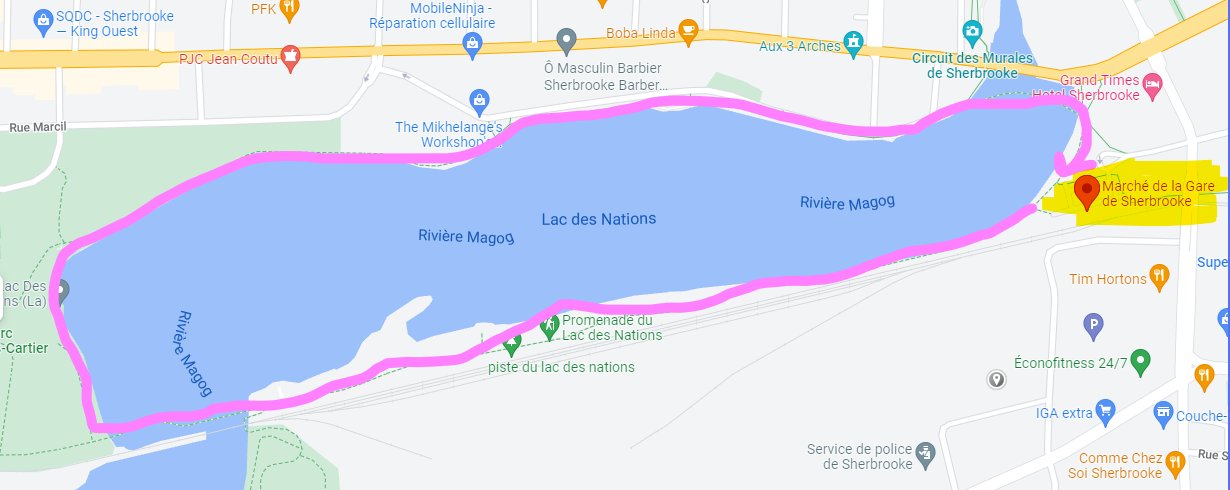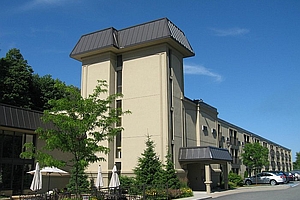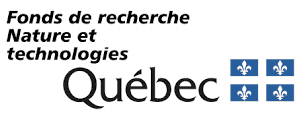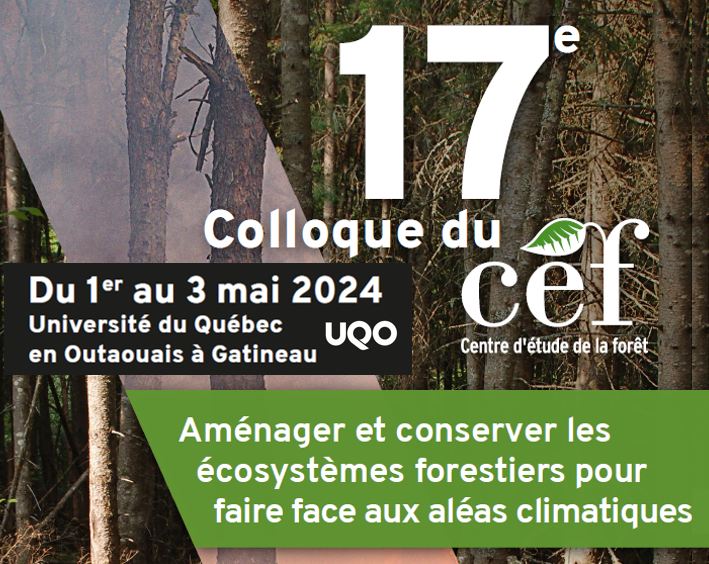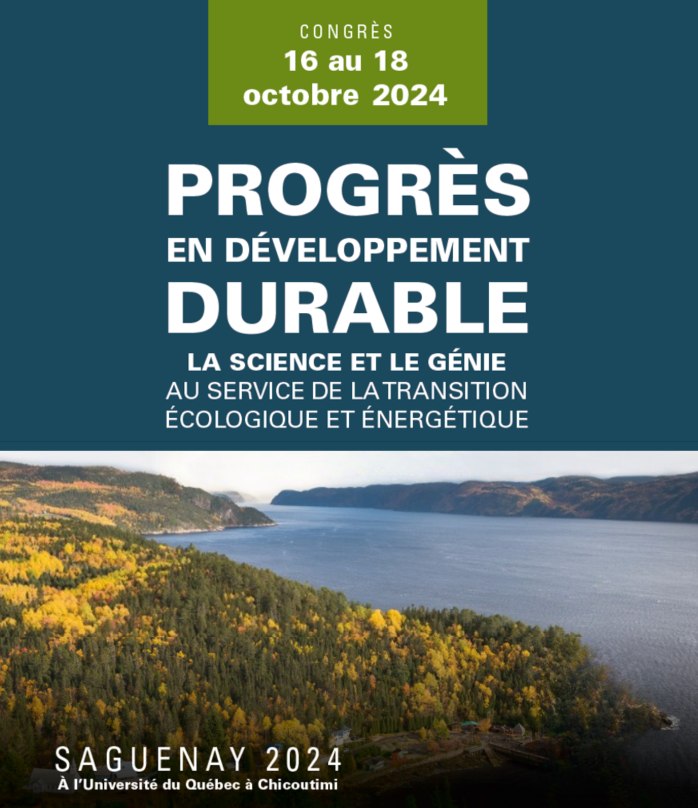
15th CFR Annual Conference
There we are! At last! The CEF is delighted to invite you to its first Annual Conference in person in three years! The conference will take place at the Centre Culturel de l’Université de Sherbrooke ![]() on September 28 and 29, 2022. A day of training workshop will precede the Conference on September 27.
on September 28 and 29, 2022. A day of training workshop will precede the Conference on September 27.
Would you like to share the results of your research project and discuss with researchers in your study area? Would you like to develop your network in the field of forest science? Would you like to see your colleagues in the flesh? The CEF Annual Conference is open to all CEF members and partners. This is an extraordinary opportunity to interact with members of the forest science research community in Quebec. It is open to all CEF members and partners.
Preliminary Program
| Tuesday Sept 27th | Wednesday Sept 28th | Thurday sept 29th | |
| AM | Workshops |
| |
| PM | Workshops |
| |
| Evening | Sports and Social Activities | Sports and Social Activities |
Invited Speaker
Dr. Jessica McCarty ![]() is an Associate Professor
is an Associate Professor ![]() of Geography at Miami University in Oxford, Ohio, USA and has more than 15 years’ experience in applications of remote sensing and geospatial science to quantify wildland and human-caused fires, fire emissions, forestry and natural resources, agriculture and food security, and land-cover/land-use change. She is a NASA-funded PI and author or co-author of more than 30 peer-reviewed journal articles
of Geography at Miami University in Oxford, Ohio, USA and has more than 15 years’ experience in applications of remote sensing and geospatial science to quantify wildland and human-caused fires, fire emissions, forestry and natural resources, agriculture and food security, and land-cover/land-use change. She is a NASA-funded PI and author or co-author of more than 30 peer-reviewed journal articles ![]() , four data citations, and one NASA Technology Transfer. She is a member of the Arctic Council
, four data citations, and one NASA Technology Transfer. She is a member of the Arctic Council ![]() ’s Arctic Monitoring and Assessment Programme
’s Arctic Monitoring and Assessment Programme ![]() 's Expert Group on Short-Lived Climate Forcers, contributor to the EU-funded Arctic Black Carbon impacting on Climate and Air Pollution (ABC-iCAP), and has co-developed fire emission methodologies used by the U.S. Environmental Protection Agency for the U.S. Greenhouse Gas Inventory and National Emissions Inventory. In summer 2022, she was appointed an Associate Program Manager for NASA's Earth Science Applied Sciences Wildfires program.
's Expert Group on Short-Lived Climate Forcers, contributor to the EU-funded Arctic Black Carbon impacting on Climate and Air Pollution (ABC-iCAP), and has co-developed fire emission methodologies used by the U.S. Environmental Protection Agency for the U.S. Greenhouse Gas Inventory and National Emissions Inventory. In summer 2022, she was appointed an Associate Program Manager for NASA's Earth Science Applied Sciences Wildfires program.
She will present:
Future Arctic and Boreal Fire Regimes
Wildland fires in the boreal and Arctic are increasing in frequency and severity, with extreme fire seasons documented across the Pan-Arctic in 2019, 2020, and 2021. Globally, human-caused and wildland fires above 60°N were larger sources of black carbon and methane than current modeled estimates of anthropogenic sectors. This talk will summarize recent and ongoing results from a recent Arctic Council expert group report as well as a current EU-funded project to understand the impact of fires in the High Northern Latitudes on air quality, black carbon emissions, and potentially emission inventories. It will highlight ongoing and needed collaboration of European scientists with U.S. and Canadian fire researchers. Several NASA programs, including NASA Wildland Fire Management and NASA FireSense, are seeking to understand and enhance collaboration between North American ecology and fire researchers and scientists, including geospatial data users. Issues of inclusion, diversity, and equity are inherent to understanding fire ecology and fire management in the High Northern Latitudes, including centering and deferring to Indigenous and local communities.
Forum on issues related to remote sensing in forestry
Forum supported and co-organized by the Quebec Association for Remote Sensing (AQT) ![]()
The search for quality information is central both for forest inventories and for everything related to modeling monitoring. Remote sensing has always had an important role for quality forest data. With the development of sensors in a wide range of technologies, remote sensing currently offers so many choices that it is difficult to determine which solution is suitable for advanced research or for the establishment of operational procedures. The AQT invites you to a one-hour discussion on this subject with a panel of experts from four backgrounds.
| Animator | ||
| Richard Fournier has been a professor in the Department of Applied Geomatics at the Université de Sherbrooke since 2001. He specializes in the use of geomatics for the management of forests and natural environments. He is a regular researcher at CEF and CARTEL | 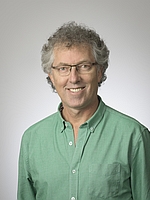
| |
|
Guest Speakers | ||
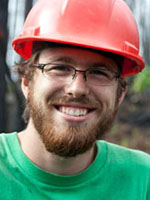
| Jean-Francois Bourdon is a remote sensing analyst at the Direction des Inventaires Forestiers du Ministère des Forêts, de la Faune et des Parcs du Québec | |
| Maude Pelletier | 
| |
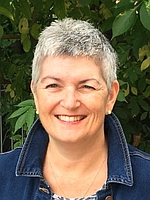
| Nathalie Perron | |
Oral Presentations Program
All talks will be held at the Centre culturel of the Université de Sherbrooke (map PDF ![]() ).
).
Workshop Program
NOTICE: Workshops will be held in building A3, A4 and A6 (whereas talks of the 28th and 29th are held in the Centre culturel - B3). Consult the interactive campus map ![]() or the PDF version
or the PDF version ![]() .
.
The workshop detailed is available in this page. You have to register for the three days of the conference to participate to the workshops. You can choose your workshops while registering online.
You must go to pavilion A3 to pick up your name badge before heading to your workshop room.
Breaks will take place at 10:00 in the morning and at 15:00 in the afternoon of a duration at the discretion of the animator. Lunch boxes will be served in room A3-125 from 12h00 PM.
| Morning 8h00 until 12h00 | Afternoon 12h45 | |
| Mapping A4-372 | Introduction à la cartographie avec QGIS (1st part) | Introduction à la cartographie avec QGIS (2nd part, until 16h30) |
| Data Analysis A3-113 | Visualisation des données / Data visualization | Introduction aux bases de données avec les placettes-échantillons-permanentes du MFFP Until 15h50 |
| Raster data A4-374 | Utilisation des produits dérivés du LiDAR (MNT, MHC, hydrographie) | NASA Earth Science for Forestry, Fire, and Climate Research and Applications in Northern Ecosystems Until 16h30 |
| EDI and citizen science A4-277 | Comment faire avancer la science de concert avec les citoyens : un échange interdisciplinaire | Until 15h50 |
| Artificial Intelligence A3-108 | Apprentissage profond appliqué à l'observation de la Terre | Vacant |
| Drone A6-2023 | Vacant | Introduction à l’utilisation des drones en milieu forestier Until 16h00 |
Poster Sessions
Both poster sessions will be held at the Centre culturel of the Université de Sherbrooke (map PDF ![]() ). The first session will take place on Wednesday the 28th from 11:00 AM. to 12:00 PM and the second Thursday from 1:30 PM to 3:00 PM
). The first session will take place on Wednesday the 28th from 11:00 AM. to 12:00 PM and the second Thursday from 1:30 PM to 3:00 PM
The best poster contest is reserved for CEF student members and only these posters have a number that you will use to vote. Other affluents are indicated by the code NM/NE meaning Non-Member / Non-Étudiant. This is a public vote. You will find a ballot in your badge holder. The votes will be collected in a box identified for this purpose.
Door Prizes
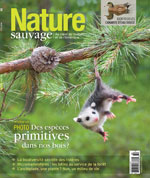
Prizes will be drawn from among the participants who are present at the conference. The draw will take place following the announcement of the winners for the best poster and best oral presentation on the last day of the conference.
- One year subscription to the Nature Sauvage
 magazine.
magazine.
- Two copies of the book "Tropical Agroforestry".
Thanks to Our Partners!
Sports and Social Activities
All week
- We have the chance to be on campus during National week for truth and reconciliation (in french)
 .
.
Wednesday Evening
- Climbing à Vertige Escalade
 wednesday night (time TBC). Bouldering or top rope in an ancient church! Bring your own equipment. Unlimited number of people but you must register
wednesday night (time TBC). Bouldering or top rope in an ancient church! Bring your own equipment. Unlimited number of people but you must register  . You pay on-site depending on what you do.
. You pay on-site depending on what you do.
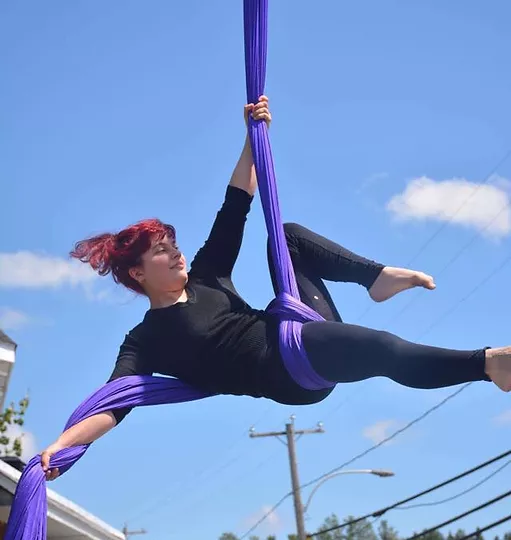
- Circus class at l'École de cirque de Sherbrooke
 wednesday from 7:00 PM to 8:30 PM -
Introduction to aerial circus with 2 or 3 coaches from l'école de circque de Sherbrooke (including our own Sabine Leblanc). No need to be strong or flexible! This session is exclusively reserved for CFR members. Dress code: shirt or tank top that can be tucked in your pants, sweatpants or leggings. Shorts aren't recommended. Bring a water bottle. Interac payment can be done to sabine.leblanc@usherbrooke.ca (answer 'cirque') with your email in the message. 13 people minimum - 24 people maximum. 20$/person. Payments will only be accepted when 13 participants will have enrolled (the minimum needed for the session to happen) and then transfered to the circus school.
wednesday from 7:00 PM to 8:30 PM -
Introduction to aerial circus with 2 or 3 coaches from l'école de circque de Sherbrooke (including our own Sabine Leblanc). No need to be strong or flexible! This session is exclusively reserved for CFR members. Dress code: shirt or tank top that can be tucked in your pants, sweatpants or leggings. Shorts aren't recommended. Bring a water bottle. Interac payment can be done to sabine.leblanc@usherbrooke.ca (answer 'cirque') with your email in the message. 13 people minimum - 24 people maximum. 20$/person. Payments will only be accepted when 13 participants will have enrolled (the minimum needed for the session to happen) and then transfered to the circus school.
Thursday Morning
- Fun Run - Nice 3 km path aroung Lac des Nations lake that you can repeat as much as you want. Meet with André Thursday at 7:15 AM at Marché de la Gare, next to Grand Times Hotel. Free parking before 9AM. See plan
 . Unlimited number of people. Free.
. Unlimited number of people. Free.
Other Activities
- Walking in Sherbrooke - We recommend the Promenade de la gorge de la rivière Magog
 , 1.7 km long for 30 minutes | Linear (one-way) | Level : Easy. It's even lit at night! Two entrances : Porte de la Gorge (Richmond street) & Porte des Fabriques (Frontenac street)
, 1.7 km long for 30 minutes | Linear (one-way) | Level : Easy. It's even lit at night! Two entrances : Porte de la Gorge (Richmond street) & Porte des Fabriques (Frontenac street)
Transport and Carpooling
A transport and carpooling service will be coordinated by each of the CEF's poles. Depending on demand, some poles will rent minibuses to transport participants. Priority will be given to CEF members. If you want to take advantage of organized transportation or if you want to offer carpooling places in your own car, fill out this form ![]() .
.
The campus should be fairly busy during the Conference and parking spaces will be limited. We suggest that you use public transit to travel between your accommodation and the campus.
Nearly 180 passes for Société de transport de Sherbrooke ![]() (STS) buses, provided by Destination Sherbrooke
(STS) buses, provided by Destination Sherbrooke ![]() , will be distributed by volunteers in the entrance halls of the Grand Times Hotel and the Hotel Le President between 6:00 PM and 8:00 PM Monday evening and Tuesday evening. The remaining passes will be available at the conference reception table starting Wednesday morning. These passes are valid for the entire duration of the Conference.
, will be distributed by volunteers in the entrance halls of the Grand Times Hotel and the Hotel Le President between 6:00 PM and 8:00 PM Monday evening and Tuesday evening. The remaining passes will be available at the conference reception table starting Wednesday morning. These passes are valid for the entire duration of the Conference.
Public transport is a bit complicated from the Hotel Le Président. We invite all those who come by car and stay at this hotel to try to take as many passengers as possible with them to get to campus and even, if possible, to make a few round trips to accommodate participants who do not have other options than public transit.
If you absolutely must park on campus ![]() , we recommend that you arrive early. Additional parking lots, with a free shuttle service, have been set up by the Université de Sherbrooke on the outskirts of the Campus. These parking lots are located at the Mont-Sainte-Anne arena
, we recommend that you arrive early. Additional parking lots, with a free shuttle service, have been set up by the Université de Sherbrooke on the outskirts of the Campus. These parking lots are located at the Mont-Sainte-Anne arena ![]() , chemin Ste-Catherine and at Lucien-Blanchard park
, chemin Ste-Catherine and at Lucien-Blanchard park ![]() (prefered option), rue Cabana. Shuttles run from 7:30 AM to 5:30 PM.
(prefered option), rue Cabana. Shuttles run from 7:30 AM to 5:30 PM.
If you have questions, contact the person responsible for your pole:
- Outaouais (UQO) : Benoît Gendreau-Berthiaume

- Québec City (Université Laval, UQAC and UQAR) : Marta Alonso-Garcia
- Abitibi-Témiscamingue : Juanita Carolina Rodriguez Rodriguez
- Montréal : Luc Lauzon
Lodging & Restaurants
There are not many accommodations near the University of Sherbrooke. The CEF has reserved blocks of rooms at reduced rates in two hotels. Book early to take advantage!
The Grand Times Hotel ![]() located between the city center and the University
located between the city center and the University ![]() (45 minute walk). 30 rooms reserved (several are already taken). You must use the code UDS260922 to obtain the negotiated price of $165.99 per room/night, single occupancy + taxes, breakfast included. Indoor pool and fitness center available. There is a $15 charge per additional person. Parking is $10/day + tax. Cancellation of the reservation is free of charge up to 7 days before the date of arrival. Reservations must be made by phone (1-888-999-3499) or by email (reservationsherbrooke@timeshotel.ca) by September 2 to obtain the discounted rate attached to the code (reserving on the website won't work for the code).
(45 minute walk). 30 rooms reserved (several are already taken). You must use the code UDS260922 to obtain the negotiated price of $165.99 per room/night, single occupancy + taxes, breakfast included. Indoor pool and fitness center available. There is a $15 charge per additional person. Parking is $10/day + tax. Cancellation of the reservation is free of charge up to 7 days before the date of arrival. Reservations must be made by phone (1-888-999-3499) or by email (reservationsherbrooke@timeshotel.ca) by September 2 to obtain the discounted rate attached to the code (reserving on the website won't work for the code).
Hôtel Le Président ![]() located close to the highways 3.8 km from the University
located close to the highways 3.8 km from the University ![]() (48 minute walk). You must use the code CEF22 online or the folio 433393 to obtain the negotiated price of $149.95 per room/night + taxes. Free parking. Reservations can be canceled free of charge until 6 PM the day before arrival. For any late cancellation or no-show, the equivalent of the first night will be charged. Reservations must be made no later than September 17 to obtain the discounted rate attached to the code.
(48 minute walk). You must use the code CEF22 online or the folio 433393 to obtain the negotiated price of $149.95 per room/night + taxes. Free parking. Reservations can be canceled free of charge until 6 PM the day before arrival. For any late cancellation or no-show, the equivalent of the first night will be charged. Reservations must be made no later than September 17 to obtain the discounted rate attached to the code.
CFR students will have to pay the cost of accommodation themselves (in groups of 2, 3 or 4) or agree with their supervisor.
More accommodation options with a selection of restaurants are available in this document ![]() prepared by Richard Fournier.
prepared by Richard Fournier.
Pour les réservation d'hôtel vous pouvez également utiliser les sites comme Booking.com ![]() , Hotels.com
, Hotels.com ![]() , Tripadviser.ca
, Tripadviser.ca ![]() , Expedia.ca
, Expedia.ca ![]() , Priceline.com
, Priceline.com ![]() , Trivago.ca
, Trivago.ca ![]() , Airbnb
, Airbnb ![]() ou Hotwire.com
ou Hotwire.com ![]() si vous êtes économes, aventuriers et avez une voiture!
si vous êtes économes, aventuriers et avez une voiture!
Code of Conduct
The organizing committee of the Centre for Forest Research Annual Conference is committed to providing a safe and inclusive environment for its participants, speakers, partners, staff and volunteers to ensure an enjoyable experience for all during the event.
As we discuss science from our different perspectives, cultures and knowledge bases, we want to foster an open and inclusive environment for all participants. Our goal is to create an environment where everyone feels welcome to participate, speak up, ask questions and engage in conversation. We expect members to be intentional and thoughtful in their interactions to ensure that the event reflects a culturally safe environment for all.
We will not tolerate harassment of any kind at this conference. Inappropriate behavior or speech will not be accepted in any part of the conference, including lectures, workshops, roundtables, and social events. Those who violate these rules will be expelled from the conference without refund, at the discretion of the conference organizing committee.
If you have any questions or have witnessed any inappropriate behavior, please inform the EDI committee (Juanita Rodriguez or Marta Alonso-Garcia). All information submitted will be treated with discretion.
COVID-19 Guidelines
One of the most effective ways to protect yourself and reduce the transmission of COVID-19 in public events is to wear a mask (especially when the 2m distancing cannot be respected). In order to better protect all persons participating in the annual CEF colloquium, face coverings (masks) will be required on the colloquium premises (cultural center, classrooms, etc.) except for brief moments during meals and breaks. Please note that wearing a mask will not be required for presenters when they give their talk at the lectern. If you do not have a mask, there will be some available on site. Please wear a mask at all times for the safety of others.
If you have symptoms of COVID-19 ![]() , please refrain from participating in the conference.
, please refrain from participating in the conference.
Wifi Access
Eduroam network - Normally, all students who have already connected to their own university's Eduroam wireless network should be able to connect to the University of Sherbrooke's Eduroam network without additional configuration. If this is not your case, we advise you to configure your mobile BEFORE coming to the conference. Setup instructions are virtually identical from university to university, but here are the instructions provided by each university: UQAM ![]() , Université Laval
, Université Laval ![]() , Université de Sherbrooke
, Université de Sherbrooke ![]() , Université de Montréal
, Université de Montréal ![]() , McGill
, McGill ![]() , Concordia
, Concordia ![]() , UQAT
, UQAT ![]() , UQAR
, UQAR ![]() , UQO
, UQO ![]() , UQTR
, UQTR ![]() , TELUQ
, TELUQ ![]() .
.
ZAP Network - For people who do not have access to Eduroam, the University of Sherbrooke offers the ZAP network ![]() . Simply select this network from the list of wireless networks available from your laptop or mobile device and you will be taken to a login page as soon as you attempt to access the web.
. Simply select this network from the list of wireless networks available from your laptop or mobile device and you will be taken to a login page as soon as you attempt to access the web.
Call for Posters and Presentations
The Call for Poster and Presentation is over since August 1st!
All CFR members are invited to present the results of their research as an oral presentation or poster. Only abstracts presenting results will be accepted for oral presentations. Submissions of CFR student and post-doctoral research projects that are well underway will be given priority by the selection committee. The deadline for submitting a proposal is August 1, 2022.
This year, the CEF encourages members to present on topics that are somewhat outside the CEF's traditional lines of research: health, society, arts, geomatics and remote sensing. Always obviously in connection with the forest. Classic CEF themes are of course also welcome, whether in French or in English.
Abstracts should be limited to between 250 and 300 words in the language in which the presentation will be done (English or French). Abstracts not respecting these conditions will be refused. Abstracts won't be modifiable after the submission deadline.
Specific instructions for oral presentations - Oral presentations should be 15 minutes in length, followed by 5 minutes of questions. Slides should be in PDF or Microsoft PowerPoint format. Office 2010 will be installed on the computers. You can use previous versions of Office if you do not have version 2010. If you have video or other animation, make sure that the presentation is compatible with Windows PC. Also, because we cannot guarantee access to the Internet, it is important that you save a copy of your presentation on a USB key. Therefore online presentations system should not be used (Prezi and others).
Finally, to ensure that the sessions run smoothly, NO internet connections will be permitted during the presentation. Mac users should ensure that they have a version of Office that is compatible with Windows PC.
Specific instructions for posters - Posters should be either:
- in LANDSCAPE format with maximum dimensions of 48 inches wide by 36 inches high (122 cm par 91.5 cm) or
- in PORTRAIT format with maximum dimensions of 24 inches wide by 36 inches high (61 cm par 91.5 cm).
Read the following article ![]() in Nature to improve the quality of your poster.
in Nature to improve the quality of your poster.
Please write to Stéphane Daigle if you have questions about posters and presentations.
Competition
Only students who are members of CEF at master's or doctoral level are eligible to the competition. A jury will determine the best oral presentations, while the best posters will be selected by a public vote. To vote, conference participants will need to complete a ballot form that will be available in their name badge.
Best oral presentation
- A first prize of $ 1000 given by the CEF to the best presentation
Vanessa Di Maurizio pour sa présentation intitulée : L’effet de la diversité sur la croissance individuelle des arbres: comment les espèces réagissent-elles à la diversité de leur voisinage? ![]()
- A second prize of $ 500 given by the CEF to the second best presentation
Chloé Morineau pour sa présentation intitulée : Le réchauffement climatique comme bouc émissaire : quantifier l'importance du climat dans la rétraction vers le nord de l'aire de distribution du caribou forestier au Québec depuis 1850 ![]()
- A third prize of $ 250 given by the CEF to the third best presentation
Andréanne Girard-Lemieux pour sa présentation intitulée : La gouvernance partagée pour la gestion des aires protégées: une avenue possible pour améliorer les pratiques de gestion? ![]()
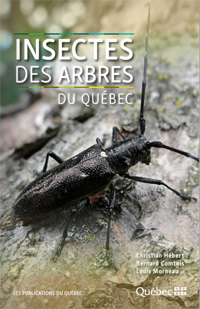
Best poster
- A first prize of $ 500 given by the CEF to the best poster
Kloé Chagnon-Taillon pour son affiche intitulée : Combiner les arts et la science pour cartographier les territoires autochtones ![]()
- A second prize of $ 250 given by the CEF to the second best poster
Laurie Dupont-Leduc pour son affiche intitulée : La diversité des espèces d'arbres façonne la structure du couvert forestier boréal ![]()
- A third prize of $ 100 given by the CEF to the third best poster
Sarah Tardif pour son affiche intitulée : Urban tree pollen: a step forward in increasing capacity to predict identity and concentrations ![]()
L’Association forestière du sud du Québec (AFSQ ![]() ) will offer the book « Insectes des arbres du Québec
) will offer the book « Insectes des arbres du Québec ![]() » and a one year subscription to the « Le progrès forestier
» and a one year subscription to the « Le progrès forestier ![]() » with the possibility to write an article in the magazine.
» with the possibility to write an article in the magazine.
Call for Training Workshops
The Call for Training Workshop is over since August 1st!
There will be an extra day of training workshops this year (Tuesday, September 27).
We therefore solicit your contribution. Whether you are a regular researcher, associate researcher, professional, postdoctoral fellow, master's or doctoral student or even non-member of the CFR , you can offer a one-day or half-day training workshop. The deadline for submitting a training workshop is August 1, 2022
R packages, programming, specialized software, theory in ecology, field techniques, etc. Practical and theoretical training will be accepted. Anything that can be taught in 4 or 8 hours and that is of interest to CFR members will be considered. In case the number of proposals exceeds the number of available rooms, a committee will select the most interesting/popular ones. We will try to accommodate as many workshops as possible. For computer-type workshops, we should have a couple of computer labs available. We will reserve those for workshops involving licensed software. For workshops involving open source software, we prefer participants to bring their own laptop with the software already installed. This makes holding a computer type workshop possible in conventional classrooms.
The persons in charge of the selected workshops will not have to pay the registration fees for the Symposium. A maximum of two persons per workshop will be able to take advantage of this offer.
Please write to Pierre Racine if you have questions about the workshops.






